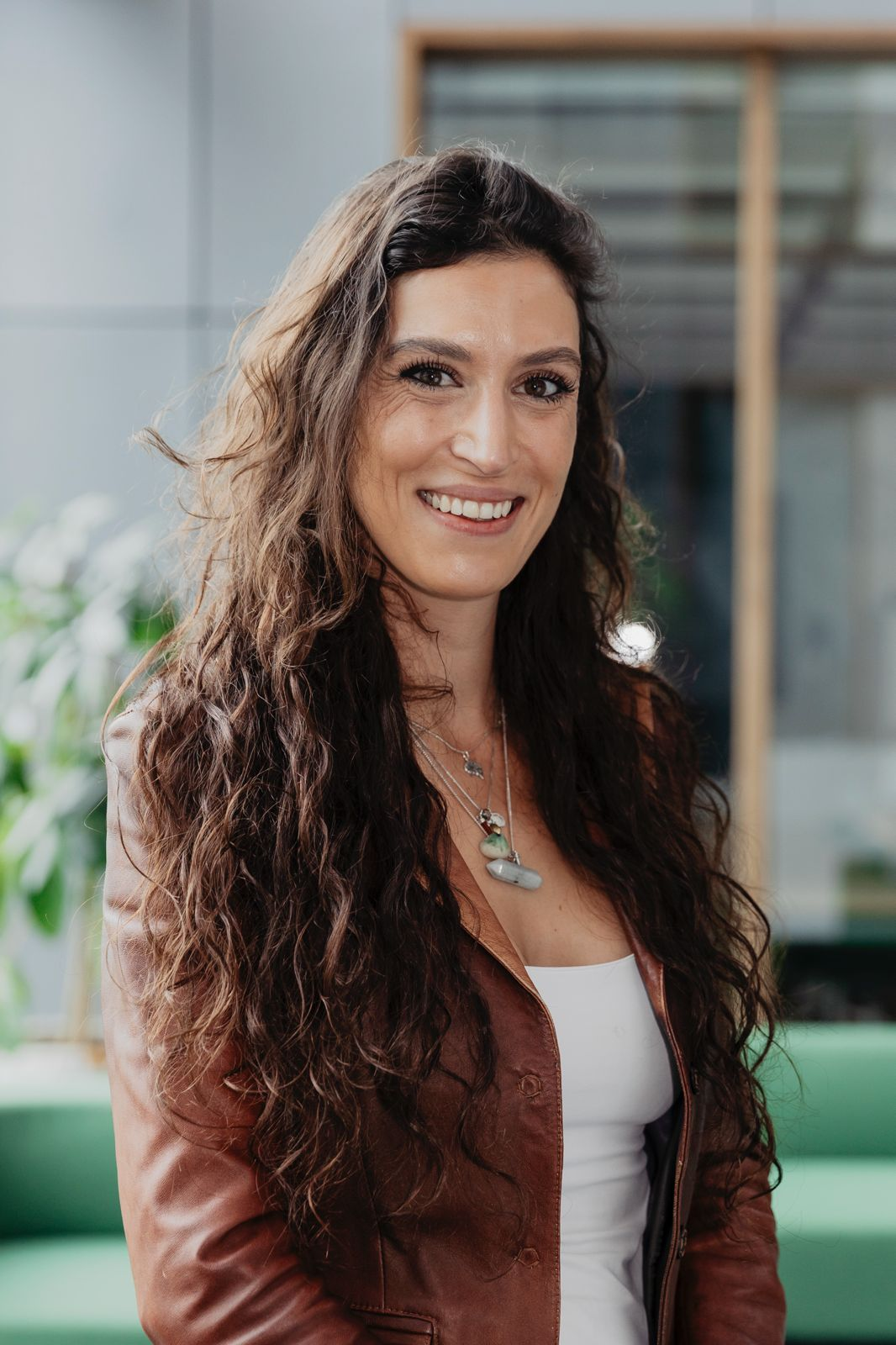For the Postdoc Appreciation Week 2025 (#PAW-NL), we're proud to highlight Carmen-Silva Sergiou, a forensic neuroscientist and postdoctoral researcher at Amsterdam Public Health (APH). She leads the Growing Up Together in Society project, following high-risk youth over a ten-year period to study their bio-psychosocial development. Her journey shows how combining neuroscience, forensic science, and technology can help create impact early in life, while also shaping her role as a supervisor and network builder.
From PhD to Postdoc in Forensic Neuroscience
After completing her PhD at Erasmus University Rotterdam, where she studied reducing aggression in violent offenders through neuromodulation, Carmen continued with a postdoc at Leiden University, focusing on virtual reality research with incarcerated burglars. Missing the neuroscience perspective, she joined APH in January 2024, where she now feels truly at home. “I feel super at home at this department in Amsterdam, and with this project I feel everything is coming together in my field of interest.”
Leading a long-term project, collaborations and APH Program support
As project coordinator of Growing Up Together in Society, specifically the GUTSGO cohort, she studies youth at risk aged 10 to 16 who have come into contact with the police, or show early signs of rule-breaking behavior or antisocial tendencies. Unlike most studies that only have two years to follow youth, this project tracks their development over an entire decade. “It’s very special to be able to gain valuable insights into both risk factors and protective factors that contribute to their development, to see which youths grow up and desist from their rule-breaking behavior, and which will persist in this behavior, and what we can learn from that.”

Having previously worked with adults in prisons and forensic clinics, Carmen felt it was time to shift focus: “Most of their stories trace back to childhood. I want to be on the forefront, working with youth, to make impact early before things go towards a certain direction.” Alongside research, she collaborates with police, municipalities, youth workers, and other external partners, aligning her work closely with APH’s core values. She is also one of the core members of Young NeurolabNL, an interdisciplinary network for early career neuroscientists. Since February 2025, she has additionally supported the APH Mental Health program, preparing meetings and agendas and gaining insight into how the institute functions behind the scenes.
Bringing Neurotech forward
In April 2025, she received the KNAW Early Career Partnership, recognizing her efforts to bridge neuroscience and technology in forensic care. With this grant she is organizing an international symposium on neurotechnology this November at the KNAW Trippenhuis, bringing together experts she has long admired. “It feels special to now collaborate with people I used to look up to from a distance and to help bring this field forward together,” she says. For her, these achievements feel like a culmination:
Facing challenges, staying motivated sharing tips
Like many early career researchers, Carmen faces the pressures of short contracts, competitive funding, and time stress. Still, what keeps her motivated is making meaningful impact through her research: “What drives me is seeing that our work can truly make a difference. Collaborating with colleagues and partners to push the field forward keeps me energized every day.”
She also supervises three PhD candidates as co-promotor and enjoys seeing their growth and independence. “Watching them develop into independent researchers is very rewarding, and makes my very proud of them.” Guiding them has been a leadership learning curve: understanding that every researcher works differently and developing the flexibility to adapt.
Her advice to fellow postdocs is simple but heartfelt:

